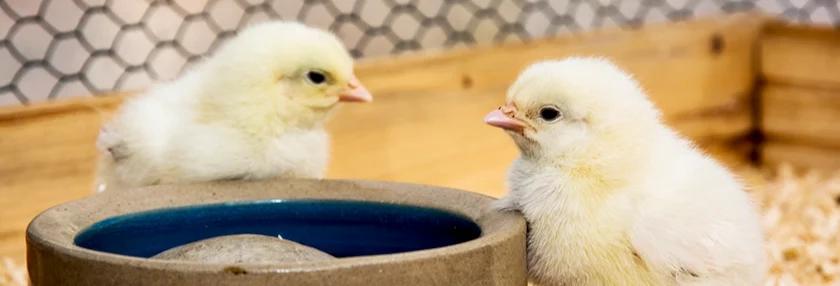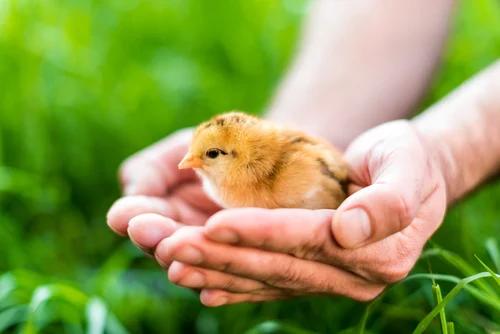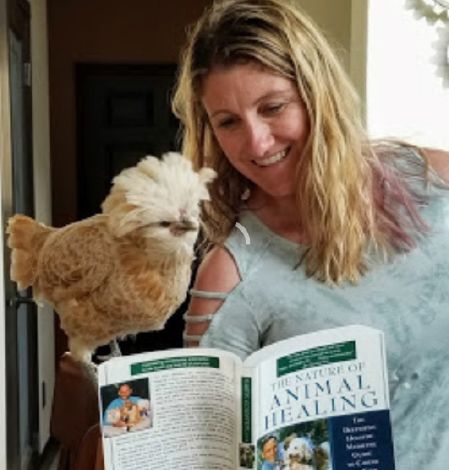Getting Chicks?


They’re hard to resist, but choose wisely
Springtime means many things, but perhaps most importantly, every feed store rings with the adorable “Cheep! Cheep!” of days-old baby chickens. These teeny puffballs are definitely hard to say no to; and, bringing some home to raise as prosperous family members is a breeze. But, you must prepare prepare wisely.
Laws, laws, laws
There are plenty of steps to take before picking out your new babies.
The very first thing you should do is check with your local ordinances to ensure you are even allowed to have chickens on your property. Chicks are tiny, fairly quiet, and can easily be hidden in your garage or living room…adult chickens are a whole other matter.
Do some research to see if you are allowed to raise poultry, how many you are allowed on your property, and if there are any breed or rooster restrictions. If allowed, move on to the neighbors.
Be neighborly
It is always smart to alert neighbors of your intent. Keeping a flock within feet of their property line may not sit well with everyone. Allowing neighbors to voice their concerns so you can all come to a reasonable agreement before bringing home the noisemakers will make everyone’s lives easier.
Be sure to remind them that the small disruption can lead to fresh eggs and compost…that can help quite a bit.
Home sweet coop
Be sure to have a secure, insulated, and properly-sized coop ready for your flock. Your birds may not move in immediately, but it is a good idea to have it ready to go…babies grow up quickly! Research the proper size of your coop and run for the number of chickens you plan to raise, where it will be located, and how to keep it safe and secure from predators.

Choose your breeds wisely
Are you looking for good foragers, egg layers, guard chickens, or lap pets? Does size matter? How about color of eggs or plumage? These are all things to consider before adopting those delightful little peepers.
Keep in mind the weather in your area as well, there are some breeds who are very heat or cold tolerant and others who would appreciate a more temperate environment.
If you have a small chicken yard, maybe you should consider bantams. If you live in a busy neighborhood, look for quieter breeds to appease neighbors. A bit of research will go a long way in building your feathered family.
Bring home the hens!
After researching all of the above, now you can check with feed and pet stores to see which ones have the chicks on your list—some businesses are willing to order chicks for you.
Ensure the chicks are vaccinated and ask for a guarantee; it’s heartbreaking to lose a chick, but even more so when you lose the whole flock because of a virus they should have been vaccinated against. Ask a well-trained chicken keeper to sex the chicks for you; a single rooster may be okay (if it is allowed in your neighborhood) but four roosters would be a big problem.
TIP: Buy in even numbers. If you get three chicks, two may pal up with each other and pick on the third.
Start small—six chicks may seem manageable when they fit in the palm of your hand, that won’t last long.
Handle with care
Chicks are delicate and must be handled like fine china. Try not to hold them too much at first; these are tiny babies, just days old, and they are scared.

When you first bring them home, place them in a warm, quiet space with a chick-friendly heater, a chick waterer and chick feeder (made for chicks specifically). Open the box and give them space so the babies can check out their surroundings. Within a few hours, the chicks should be happily pecking and scratching for goodies or cuddled together under the heat lamp.
You can bond with them by offering them treats from your hand or allowing them to climb onto your lap.
Good nutrition = good health
Buy only feed made for chicks and use the same feed the chicks were eating at the store. Slowly wean them into other feed if you wish. Chick starter feed has the nutrients and proteins necessary for growing babies. Some feed is medicated while others are organic.
Go slow on introductions
To incorporate little ones into an adult flock, keep the chicks quarantined for at least one week and monitor closely for signs of illness. If you already have a trustworthy and broody hen, that would be a good time to slowly introduce her to her foster babies. Keep new mom and babies away from the rest of the flock so they can bond, then slowly allow them to forage with the others, under very close supervision.

If mom is having a hard time keeping her flockmates from getting too close to her chicks or if the young’uns wander away from mom, separate them again and start over.
If the chicks will be on their own without adult hen supervision, wait a few months until they are big enough to hold their own against the established flock. When it’s time for teenage chickens to join the big kids, start by quietly placing them on the coop roost after the adults have gone to bed. This will allow the adults to accept them into the flock as well as teach the teens where their new home is.
It may take a few trials runs before everyone gets the gist, but patience and supervision always pay off!
About the author
Shelby Stone is a writer and communications mechanic at Small Pet Select (shop.smallpetselect.com) when she isn’t busy with her chickens, her horse Percy, Mango the parrot, and the many other animals in her family.
Read The Chicken Whisperer’s Guide To Keeping Chickens https://www.google.com/books/edition/The_Chicken_Whisperer_s_Guide_to_Keeping/0FratyudbXwC?hl=en
Are you REALLY ready to raise chicks?
Tags:Chicken Chatter

Acreage Life is part of the Catalyst Communications Network publication family.
















